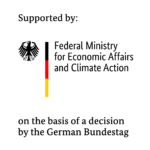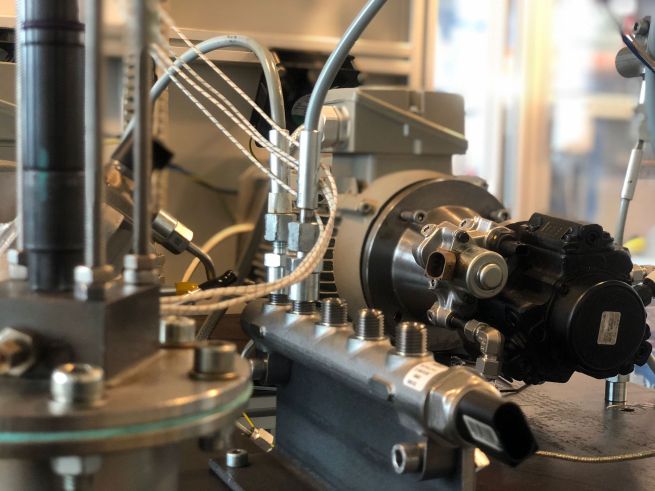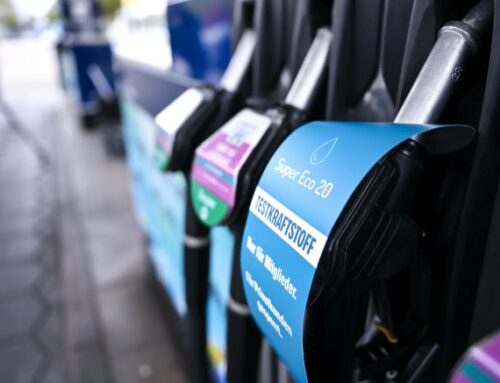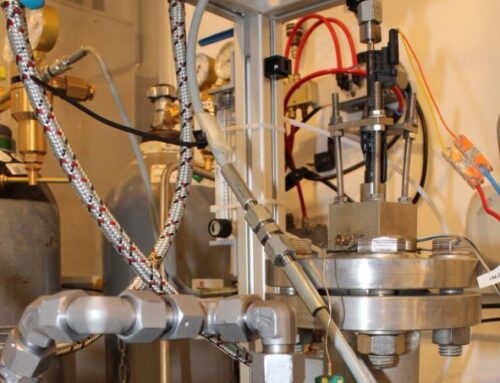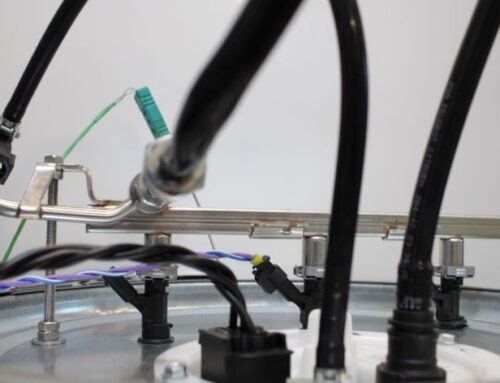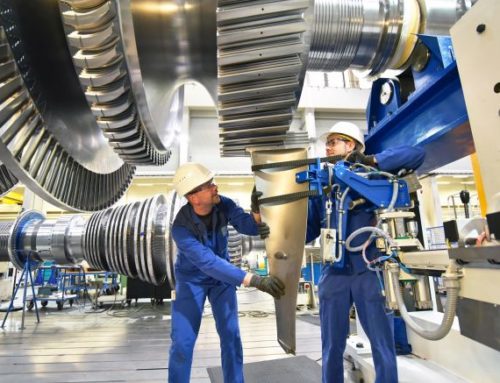NormAKraft research project evaluates the state of research
13 July 2023 – The development of synthetic fuels from renewable sources, which as so-called e-fuels could make an important contribution to climate protection and lower pollutant emissions, has already reached a high level of technical maturity. Fuels that are compatible with existing and current engine technology and comply with applicable fuel standards have the best chances of being launched on the market in the near future. This applies above all to Fischer-Tropsch diesel, methanol-to-gasoline products (as gasoline substitutes) and synthetic paraffinic kerosene, as well as the gases hydrogen and methane.
This is one of the results of the research project “NormAKraft – Norm Conformity of Alternative Fuels”, in which TEC4FUELS GmbH and OWI Science for Fuels gGmbH were involved among other partners. In the project, the two companies conducted investigations into the material compatibility, physicochemical properties and standard conformity of e-fuels.
Research is also being conducted into e-fuels such as methanol, dimethyl ether, oxymethylene ether, dimethyl carbonate and methyl formate. In addition to a virtually balanced CO2 balance, they can reduce emissions of pollutants such as soot, nitrogen oxides and unburned hydrocarbons to almost zero in some cases thanks to their higher oxygen content. However, their physicochemical properties differ significantly from conventional fuels in some cases, so that on the one hand they do not comply with the applicable fuel standards and on the other hand technical modifications to the engine technology are required for their use.
The potential applications of e-fuels are, for example, in sectors that are difficult to electrify, such as aviation (paraffinic kerosene is considered to have no alternative on long-haul flights), long-distance heavy-duty commercial vehicles, heavy off-road vehicles and machines, and the passenger car fleet for a transitional period until all vehicles are electrified. In the marine sector, methanol and ammonia are the main e-fuels under discussion.
Regulatory framework puts brakes on e-fuels
However, there are still a number of hurdles between the technical maturity of new e-fuels and their availability to all consumers. In addition to standardization, fuels must also comply with a number of other European and country-specific directives and regulations. The most important of these are the European REACH Regulation, the Renewable Energies Directive, the Fuel Quality Directive and, in Germany, the Federal Immission Control Act with the individual Federal Immission Control Ordinances. Currently, there are still a number of regulations in these laws that impede or prevent investment in the construction of large-scale production plants and the use of synthetic fuels. Without a secure legal framework, it is not possible for investors to establish viable business models and thus a broad market launch of alternative climate-friendly fuels.
The “NormAKraft – Norm Conformity of Alternative Fuels” project provides valuable insights into the technical boundary conditions. It was a sub-project of the accompanying research for the funding initiative “Energiewende im Verkehr” (BEniVer) of the Federal Ministry of Economics and Climate Protection and was coordinated by DECHEMA e.V., Society for Chemical Engineering and Biotechnology.
A final report with fact sheets on the alternative synthetic fuels studied is available on the DECHEMA website at https://dechema.de/normakraft-path-123211,124930.html
